Rescued by Texas Jack?
Stop me if you’ve heard this one before…
A westward-bound wagon train meets a grim fate at the hands of an Indian band. Chaos ensues, wagons are laid to waste, lives are tragically lost, and amidst the turmoil, a young boy and two girls find themselves captives, their lives forever changed. Enter the daring Texas Jack, a cowboy and scout of legend, who emerges to rescue the boy from his plight and shepherd him back to the realms of the known world. This boy, adrift in identity yet undeterred in spirit, vows to carve out a legacy of his own. And the boy at the heart of our story answers to the name...Montana Harry?
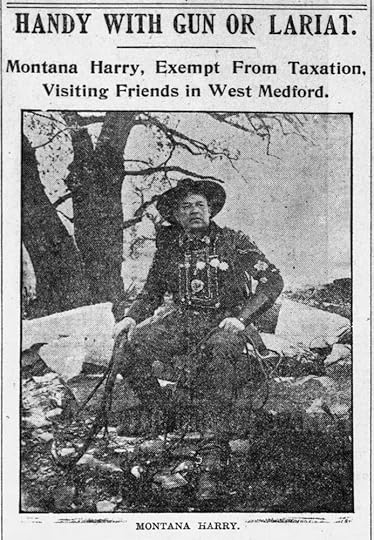
In August of 1904, articles like this one popped up in newspapers across the country. This one is from the Saint Paul, Minnesota, Globe newspaper:
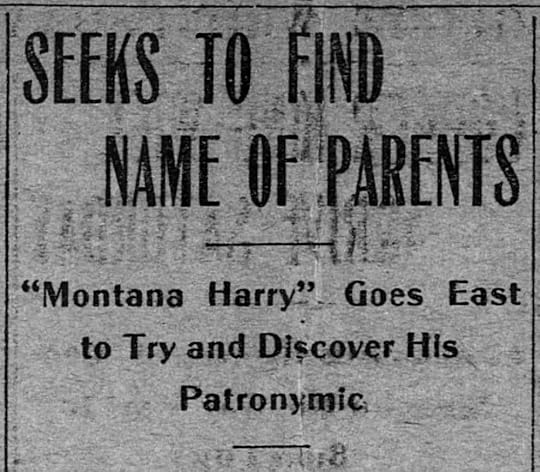
The story of Montana Harry is a tale that, on its face, bears a striking resemblance to the story of Texas Jack Junior. Both narratives feature young boys captured by Native Americans, subsequently rescued by Texas Jack Omohundro, and raised to adulthood with Jack’s aid. Both men used their harrowing childhood stories to carve out careers in the burgeoning world of Wild West entertainment, following in the dusty footsteps of Wild West legends like Buffalo Bill Cody. But when we dig a little deeper, Montana Harry's story begins to unravel at the seams, especially when compared to the (slightly) more verifiable narrative of Texas Jack Junior.
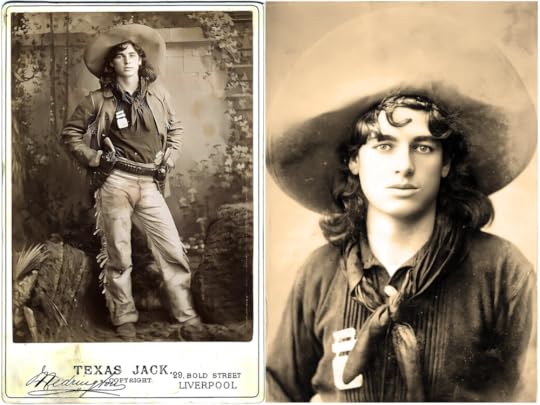
The first red flag in Montana Harry's tale is the timeline. He claims to have been rescued by Texas Jack and raised on his ranch, yet the historical record places Texas Jack Omohundro in North Platte, Nebraska, by 1870, not roaming the wilds of Montana. There, Jack worked as a bartender at Lew Baker's saloon, interspersed with scouting missions alongside his good friend Buffalo Bill Cody. This settled lifestyle in North Platte directly contradicts Harry's account of a ranch upbringing under Texas Jack's guidance.
Moreover, Harry's assertion that he joined the Army in 1871 casts further doubt on his story. By that time, Texas Jack had been in North Platte for two years and had already embarked on his career as a scout. He would soon transition into show business, activities well-documented and leaving little room for the ranching life in Montana Harry describes. The historical record simply does not support the possibility of Texas Jack being in Montana to rescue Harry, much less raising him on a ranch that didn't exist.
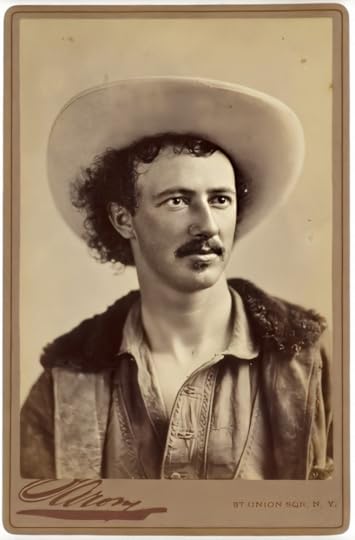
The narrative inconsistencies extend beyond just dates and locations. While Texas Jack Junior's story fits within the known timeline of Texas Jack Omohundro's life, Montana Harry's account relies heavily on sensationalized newspaper articles and lacks independent verification. The vivid details of his rescue, the presentation of his scalp by an Indian chief, and his subsequent career as a cowboy, scout, and ranch owner echo the tropes of dime novels more than the documented realities of the Wild West.
Montana Harry's story, while compelling, seems to have been crafted to capitalize on the fame of Texas Jack Omohundro and the insatiable appetite of the American public for Wild West tales. The narrative served not only to elevate Harry's status as a performer in the same vein as Buffalo Bill but also to imbue him with an aura of authenticity and adventure that was crucial for success in the world of Wild West shows.
Montana Harry's account of his early years among the Sioux and his subsequent rescue by the legendary Texas Jack is rendered even more suspect by other outlandish claims that pepper his narrative. In a 1902 interview with the Boston Globe, Harry purported to be the "sole survivor of the scouts attached to General Custer’s command at the massacre of the Little Big Horn," a feat that history books and eyewitness accounts fail to corroborate. Adding layers to his already questionable tale, Harry also claimed to be the lone white graduate of the Carlisle Indian School, a historically significant institution known for its role in the assimilation policies toward Native American children, but with no records to support Harry's attendance, much less his unique graduate status. Moreover, Harry's assertion that his purported status as a "white Indian" rendered him exempt from taxation stretches the bounds of credibility even further. These fantastical additions to his life story, far from lending him the air of mystery or heroism he perhaps sought, instead cast a shadow of doubt over the entire narrative, making it difficult to sift the truth from his tall tales.
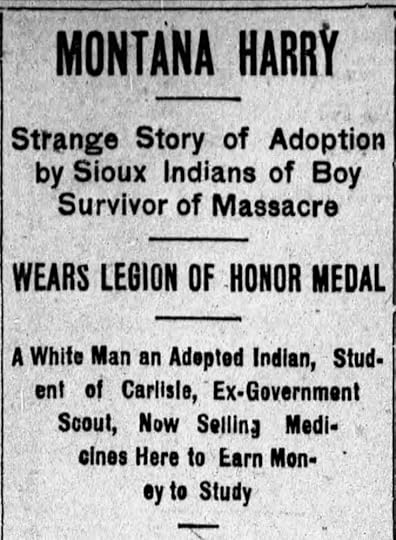
It's within the realm of possibility that Texas Jack Junior, much like Montana Harry, wove a narrative fabric around his origins that leaned more towards fiction than fact. But if Junior did indeed craft a tale about his past, he spun a yarn that was not only more believable but also far more captivating and comprehensive than Montana Harry's attempt. Junior didn't just adopt the name casually; he embedded it deeply into his identity, to the extent that "Texas Jack" appeared on crucial legal documents, ranging from immigration forms to his daughter Hazel Jack's birth certificate. The name "Texas Jack" is printed on his death certificate, anchoring his legend in official records. Moreover, he passed this legacy onto his only son, whom he named Texas Jack, a child who tragically passed away at the tender age of nineteen months in Chicago in July of 1892. This level of commitment to the persona suggests a depth of connection to the identity of Texas Jack that goes beyond mere storytelling or showmanship, embedding Junior's tale firmly within the fabric of his real-life experiences and the historical record, despite the potential for embellishment.
In the end, while both stories captivate with tales of adventure, survival, and identity, a closer examination reveals that Montana Harry's story is less a recounting of actual events and more a masterclass in the art of Wild West myth-making. In the landscape of American folklore, where truth and fiction blend seamlessly, Montana Harry's tale stands as a testament to the lasting legacy of Texas Jack Omohundro and the enduring power of storytelling, even when those stories stretch the bounds of believability.
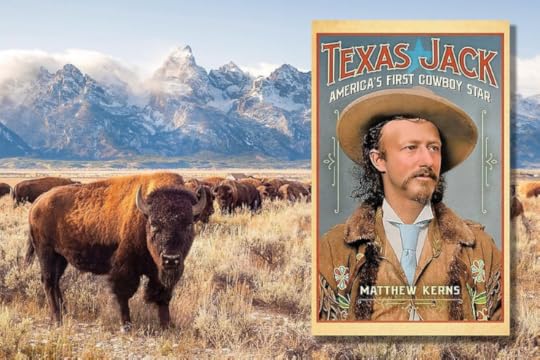
If this glimpse into the tangled tales of the Wild West has captured your imagination, dive deeper into the life of the man who embodied the cowboy spirit like no other. Explore "Texas Jack: America's First Cowboy Star" for a compelling journey through the true story of an American icon. Your adventure awaits at Amazon: https://amzn.to/4aiHWsE.



